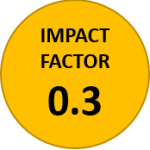Amitabha Tripathi
Notes on Number Theory and Discrete Mathematics
Print ISSN 1310–5132, Online ISSN 2367–8275
Volume 24, 2018, Number 2, Pages 71–73
DOI: 10.7546/nntdm.2018.24.2.71-73
Full paper (PDF, 138 Kb)
Details
Authors and affiliations
Amitabha Tripathi ![]()
Department of Mathematics, Indian Institute of Technology
Hauz Khas, New Delhi – 110016, India
Abstract
Positive integers that cannot be represented by a linear form with relatively prime coefficients and over nonnegative integers are finite in number. We describe a connection between the largest number in this set and the cardinality of this set. We also describe a connection with a subset related to this set.
Keywords
- Representable
- Frobenius number
2010 Mathematics Subject Classification
- 11D07
References
- Nijenhuis, M. &Wilf, H. S. (1972) Representation of integers by linear forms in nonnegative integers, J. Number Theory, 4, 98–106.
- Sylvester, J. J. (1884) Problem 7382, in W. J. C. Miller, ed., Mathematical Questions, with their Solutions, from the “Educational Times”, 41, 1884, p. 21. Solution by W. J. Curran Sharp.
- Tripathi, A. (2003) On a variation of the Coin Exchange Problem for Arithmetic Progressions, Integers, 3, Article A01, 5 pages.
Related papers
Cite this paper
Tripathi, A. (2018). A note on the Frobenius and the Sylvester numbers. Notes on Number Theory and Discrete Mathematics, 24(2), 71-73, DOI: 10.7546/nntdm.2018.24.2.71-73.


